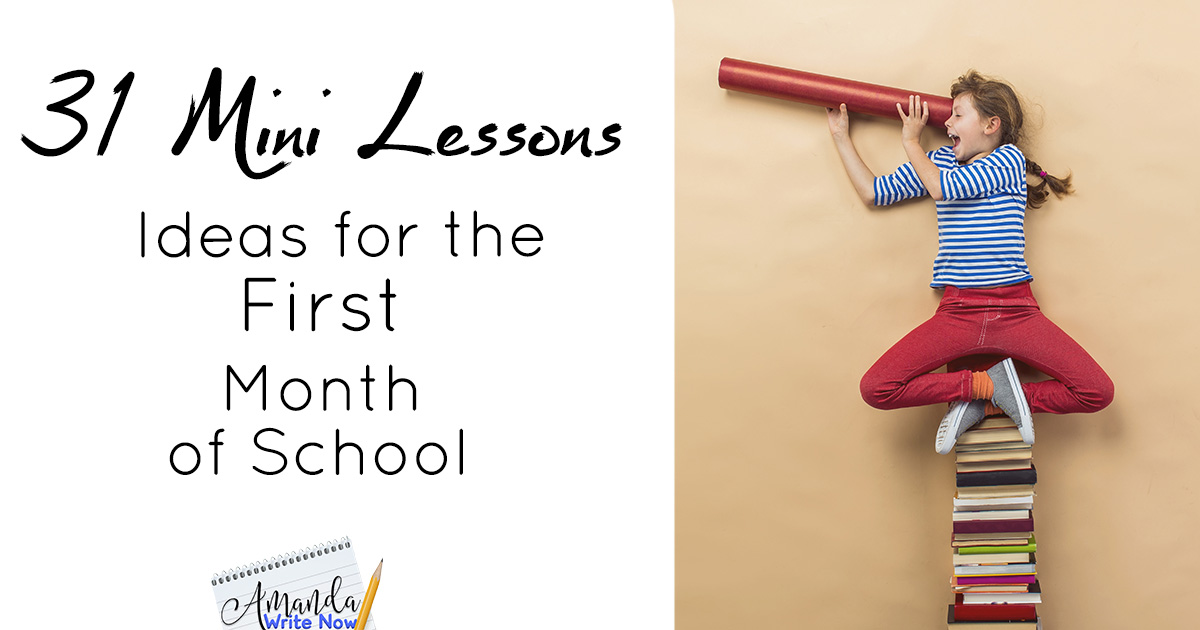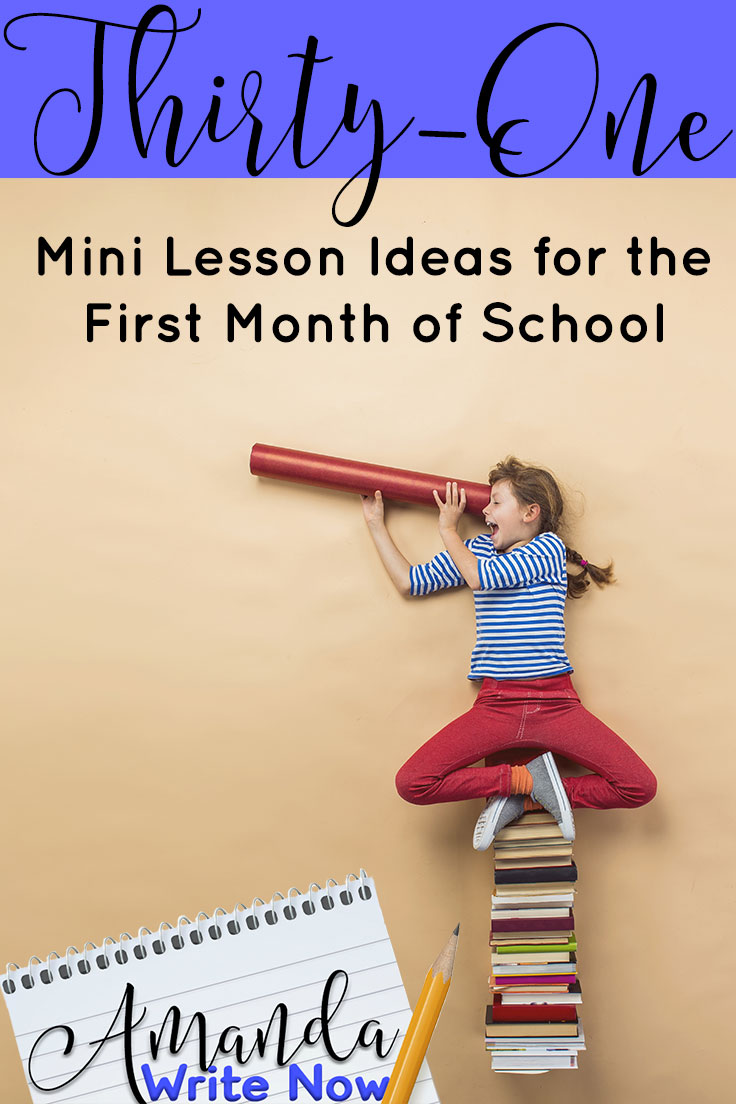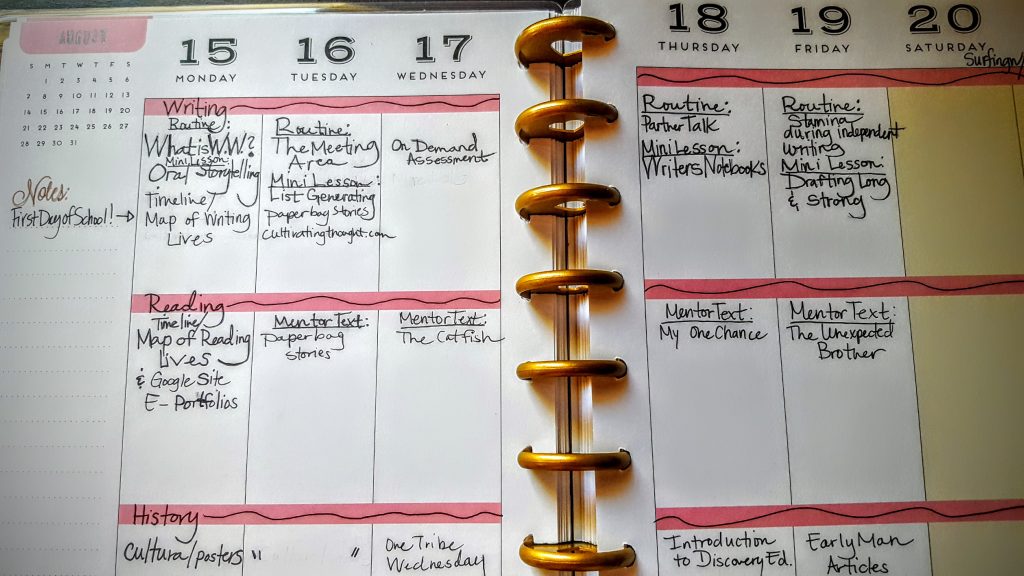
What do you write in your plan book the first month of school, how about the first week? If you took a peek at my plan book you’d find mini lesson titles, mentor text lists, scheduled assessments, deadlines, unit plan goals and most importantly my philosophy for teaching writing…students and teachers ARE WRITERS. Here, take a look at my first week…
Some few notes on my first week plans:
- W.W. is writing workshop.
- Oral storytelling is essential the first week of school so students can get to know each other and generate lots of lists for writing ideas.
- Making a timeline of your writing and reading life involves having students reflect over the years, from very first experiences reading and writing up to the most current experiences with these subjects (be open to both negative & positive experiences, it is eye-opening and essential teachers understand their students’ pasts).
- Paper bag stories are when students doodle on, and fill paper bags with mementoes from their life.
- I think I should have put an apostrophe in Writer’s Notebooks (ugh, just editing my plan book don’t mind me).
- I’ll explain Google site E-Portfolios in my next post.
- All the mentor text titles are in the 6th Grade Units of Study CD.
- Yes, I’m going surfing the Saturday after the first week of school, woohoo! Yeah I surf, makes for some awesome stories for kids!
- I plan to share more peeks into my plan book this year, so stay tuned.
In this post you’ll find thirty-one mini lesson topics you can put into your plan book for the first month of school if you’d like:)
Okay here’s the list you’ve been waiting for…
- Writing workshop structure
- Oral storytelling
- How to come to the meeting area
- Expectations during a mini lesson
- What is a mentor text?
- How to emulate mentor texts
- How to discuss with partners
- Lows & highs from your writing past
- What is writing stamina and how do you build it?
- How to go about organizing your journal
- What is conferring & how does it work?
- Setting writing goals
- What to do when you hit a roadblock
- Using writing checklists
- Generating lots of lists
- What to do when a memory of a story is fuzzy
- Drafting long and strong
- Using a plot diagram to organize story parts
- Getting past the hump of spelling
- Writing many versions of leads
- Types of leads
- Using verbs to add detail
- Writing with your reader/audience in mind
- Reflecting on goals
- Writing many resolution/ending versions
- Types of endings
- Sequencing your story
- Using transitions effectively
- Effective organization with paragraphs
- Developing characters with description & dialogue
- When I’m done, I’ve just begun!
- More Mini Lessons
I hope you find this list helpful and it provides a jumping off point for your first writing workshop mini lessons of the school year. You set the tone for the year. Remember, your students ARE WRITERS and SO ARE YOU!


0 Comments